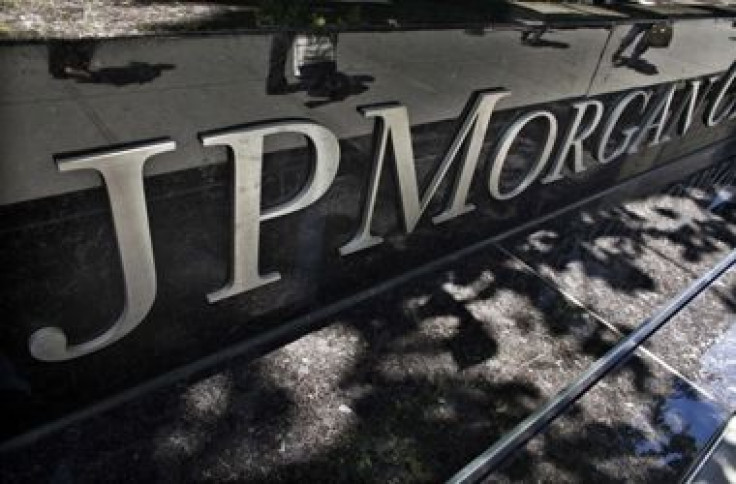Are JPMorgan Chase (JPM), Citibank (C), Bank of New York Mellon (BK) & Deutsche Bank (DB) Using TARP Funds To Buy Depositary Receipt Programs? [VIDEO]

John A. Germinario, chief executive officer of Global Securities Services Corporation (GSS), spoke with the International Business Times from the floor of the New York Stock Exchange about depositary receipts and the negative effects on global investor portfolios.
Global Securities Services Corporation, “The Depositary Receipt Watchdog,” so far has published two newsletters in 2013 claiming depositary banks have used U.S. taxpayer funds to buy depositary receipt programs.
“There’s quite a few issues,” said Germinario. “One of which is the pre-release issue, which means that the four depository banks, JPMorgan, Citibank, Bank of New York Mellon and Deutsche Bank, have the ability, literally, to print paper that really does not exist. It’s very much like the treasury. It essentially floods our market with currency and obviously the implications that follow that.”
Germinario explained the depository banks will pay companies anywhere from $5 million to $90 million just to obtain their account, and that the banks never pay taxes. In 2005, Germinario and his team advised the U.S. Securities and Exchange Commission (SEC) and the Internal Revenue Service (IRS) the depository banks did not pay taxes. Germinario said the IRS collected somewhere around $550 million thus far, and after it is all over, the amount should be nearly $2 billion of unpaid taxes by JPMorgan Chase & Co. (NYSE: JPM), Citibank (NYSE: C), Bank of New York Mellon Corporation (NYSE: BK) and Deutsche Bank AG (NYSE: DB).
In Volume I, Issue I of the company’s newsletter, “Depositary Banks Used US Taxpayer Funds to buy Depositary Receipt Programs,” GSS said Bank of New York Mellon has effectively paid foreign private issuers (FPI) over 10 percent of the Troubled Asset Relief Program (TARP) funding the bank received as a result of the 2008 financial crisis.
The U.S. Department of Treasury established TARP to help stabilize the U.S. financial system during the 2008 global financial meltdown. Congress initially authorized $700 billion for TARP in October 2008, but was later reduced to $475 billion by the Dodd-Frank Act. Nearly $250 billion under TARP was used to stabilize banking institutions, according to the Treasury.
“With the payments that are made, it just secures the relationship for the foreign private issuer,” said Germinario. For example, he said a company can get paid X amount of dollars just to give the exclusive right for the depository bank to service the account. The depository bank then makes money from the arrangement on several aspects, including issuance cancellation, pre-release, DSF and fees.
“So it’s a very, very lucrative business for them [depository banks], but in doing all of that, they represent a lot of risk to institutional and international investors when purchasing companies that have ADR programs,” said Germinario.
The chief executive said investors need to confront their ADR issuer and advise them to immediately eliminate the pre-release component of their relationship with the bank.
“Investors across the world need to confront the Securities and Exchange Commission,” said Germinario. “They need to value how much they have lost over the period of time of their holdings because of that pre-release component that’s involved in the system.”
Germinario said he has been advising the U.S. government on the issue since 2005, and added that due to a largely unregulated depositary receipt market place, it will cause share price fluctuation, price manipulation, equity dilution, shareholder rights risks and more.
“We insiders look at hundreds of billions of dollars of valuation evaporated over the last decade, and some think it’s a trillion dollars of investor value that have been evaporated," said Germinario. "It is something that doesn’t exist anymore. Pre-release in the simplest terms is the ability to print paper unsupported until settled, and they can go on for years and we’ve got evidence that they do go on for years. So all they do is flood the market place with free shares.”
As a result of these practices, Germinario said American deposit receipts and global depositary receipts are toxic and have poisoned investor portfolios for decades.
“The system needs to be modified, it needs to be modernized, and the greed factor has to be removed from the whole scenario.”
© Copyright IBTimes 2024. All rights reserved.












